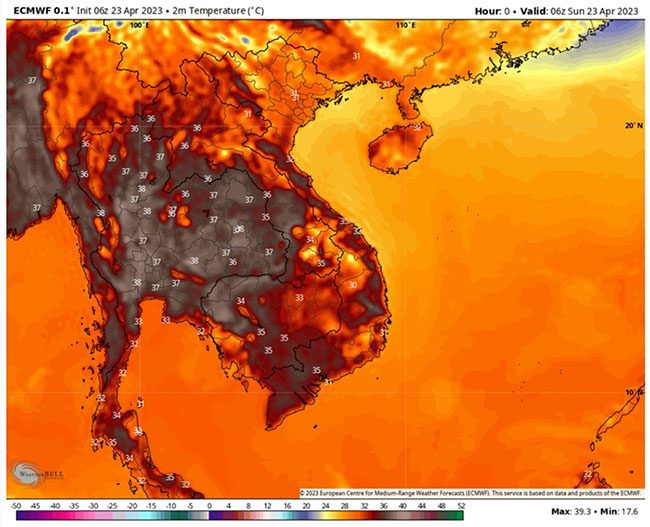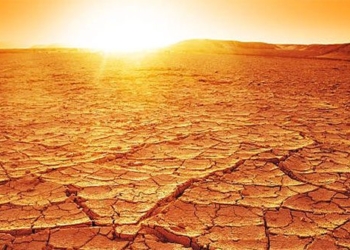Global warming is causing heatwaves to occur more frequently and with greater intensity across every continent.
A new study published in Nature Communications reveals a simple reason why some regions are more vulnerable: they have never experienced extreme heat events before.

In the heatwave at the end of April, many areas in Vietnam recorded temperatures higher than normal by about 1.5-4.6 degrees Celsius, with some places exceeding 9.7 degrees Celsius. (Photo: Weather Bell).
When facing heatwaves, floods, or epidemics, societies often prepare to respond to disasters they have previously experienced. Once a disaster occurs, people and policymakers become acutely aware of the risks and how to respond, according to Dann Mitchell, a climate scientist at the University of Bristol (UK) and author of the study.
“As months go by, people tend to forget and no longer care,” Mitchell stated.
Mitchell’s team analyzed daily maximum temperatures worldwide from 1959 to 2021. The results showed that 31% of the Earth’s surface has experienced abnormal heat.
The study argues that these areas are now somewhat prepared for future heatwaves. In contrast, many regions that have not yet experienced extreme heat have been spared purely by chance and are unprepared.
These vulnerable areas include Germany, the Netherlands, Belgium, Luxembourg, and the region surrounding Beijing, China. Additionally, there are developing countries such as Afghanistan, Guatemala, Honduras, and Papua New Guinea. Other particularly vulnerable regions include the Far East of Russia, northwest Argentina, and parts of northeastern Australia.

The Jialang River in Chongqing, China, receded during a heatwave in August 2022. (Photo: AP).
In 2021, a heatwave in the Northwestern Pacific exceeded all previous temperature records for the region. Hundreds of people in Washington and Oregon (USA) may have died due to the heat. The new study indicates that record-breaking heatwaves have occurred globally over the past decades and could continue to happen anywhere.
As the planet warms, the temperature range in many areas is shifting upwards. Heatwaves that were once considered unusual are becoming more likely. Therefore, societies need to be cautious about potential extreme climate conditions, according to Karen A. McKinnon, a statistical and environmental expert at the University of California (USA).
Even in places that have experienced record heatwaves, many residents may still be unprepared for future extreme temperature conditions, as much of the year, temperatures remain moderate, McKinnon noted. Additionally, cooling solutions, such as green spaces or air-conditioned environments, remain inaccessible to the poor.




















































